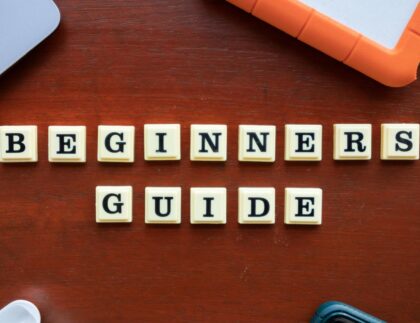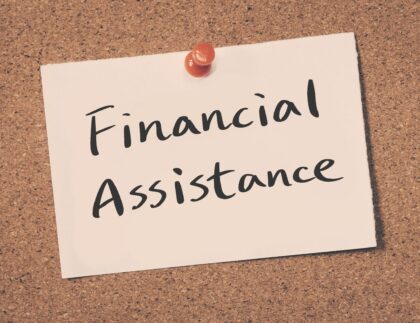
A CDL training program typically consists of a combination of classroom instruction and driving practice. In the classroom, students will learn about safety procedures, vehicle inspection, driving maneuvers, and other key components of operating a commercial vehicle. This may include lessons on federal regulations, hours of service, and trip planning, as well as handling hazardous materials and emergency procedures.
Driving practice is a crucial part of the program, allowing students to gain hands-on experience with operating a commercial vehicle. They will practice pre-trip inspections, backing skills, maneuvering in tight spaces, and navigating different types of roads and traffic situations.
A comprehensive CDL training program prepares students to confidently and safely operate commercial vehicles, while also equipping them with the knowledge and skills needed to successfully pass the CDL exam and obtain their commercial driver’s license.
What is a CDL License, and Why is it Necessary?
A Commercial Driver’s License (CDL) is required for individuals who want to operate vehicles such as large trucks and buses for commercial use. There are three different types of CDL licenses: Class A, Class B, and Class C, each with specific requirements and capabilities.
To obtain a CDL, applicants must meet certain requirements which typically include passing a written knowledge test and a skills test, having a valid non-commercial driver’s license, and meeting age and medical requirements.
CDL training is crucial for ensuring that drivers have the necessary skills and knowledge to operate commercial vehicles safely and efficiently. A reputable truck driver training program, such as Smith & Solomon’s programs, should provide comprehensive classroom instruction, hands-on training, and behind-the-wheel experience.
What You Need to Know About Your CDL Training
When choosing a CDL training program, it’s important to consider factors such as accreditation, certification, and licensing requirements. Look for a school that is accredited by a reputable organization, and offers certification that is recognized in the industry. Additionally, ensure that the program meets the licensing requirements for the specific type of CDL you are pursuing.
Furthermore, it’s essential to inquire about any additional assurances or guarantees offered by the school. Some programs may provide job placement assistance or a guarantee of retraining if you don’t pass the CDL exam. Inquire about what is included in the tuition price, such as study materials, practice tests, and any necessary equipment or truck rental fees.
After passing the CDL exam, you can become a company driver by meeting the specific requirements of the company you are interested in working for. This may include a clean driving record, passing a background check, and meeting any additional qualifications for the specific type of driving you will be doing. Additionally, some companies offer potential bonuses for new drivers, such as signing bonuses or performance-based incentives.
Here’s What to Expect to Review in Training
CDL training covers a range of key areas to prepare individuals for a career in commercial driving. This includes in-depth knowledge of road signs, rules, and regulations, as well as vehicle operation, maps, route planning, electronic logs, safety procedures, and hands-on driving experience. Additionally, a reputable program will provide thorough instruction on defensive driving techniques and proper handling of hazardous materials if necessary.
Completing coursework before starting with a carrier is often required, so it’s essential to understand any additional training requirements and considerations. Some carriers may have specific endorsements or certifications they require, so it’s important to research and prepare accordingly.
How to Pass the CDL Exam with Ease
Passing the CDL exam is a crucial step towards starting a career in the trucking industry. Whether you’re a first-time test taker or looking to renew your license, preparing for the CDL exam can be overwhelming. However, with the right approach and strategies, you can pass the exam with ease.
Here are some pointers to prepare you for passing your road test:
1. Practice is key: The more time you spend behind the wheel, the more comfortable and confident you’ll become. Practice different driving scenarios, such as parking, highway driving, and parallel parking.
2. Get a good night’s sleep: Being well-rested can help improve your focus and concentration during the test. Aim for at least 7-8 hours of sleep the night before.
3. Arrive early: Give yourself plenty of time to arrive at the testing facility so you can relax and mentally prepare. Being rushed can increase stress and anxiety.
4. Avoid common mistakes: Some common mistakes include not checking your blind spots, rolling stops at stop signs, and not using your turn signals. Pay attention to these areas during your practice.
5. Stay calm and confident: Take deep breaths and remind yourself that you have prepared for this moment. Confidence can make a big difference in your performance.
6. Visualize success: Spend some time visualizing yourself successfully completing the road test. Positive visualization can help boost your confidence and mindset.
By following these tips and strategies, you can increase your chances of passing your road test and becoming a safe and confident driver.
About the CDL Knowledge Test
The CDL knowledge test covers a wide range of topics including state rules and regulations, weight limitations, and required passing percentage. It is important to thoroughly understand the rules and regulations for the state in which the CDL will be obtained, as these can vary from state to state. The passing percentage for the test also varies by state, but typically ranges from 80-85%. Taking thorough notes during class and studying the state CDL manual are crucial steps for success on the test. These resources provide a comprehensive understanding of the material and serve as valuable study aids. In addition, taking practice exams and reviewing study guides are effective ways to prepare for the test. Practice exams help familiarize test takers with the format and types of questions that will be asked, while study guides provide additional material to reinforce learning. By utilizing these resources and taking the time to thoroughly prepare, test takers can increase their likelihood of passing the CDL knowledge test.









